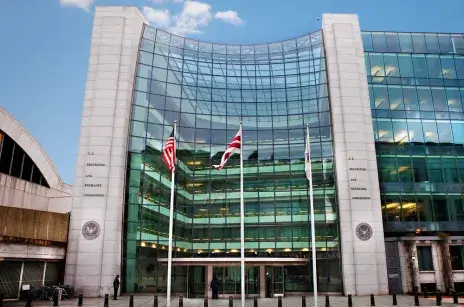The changing climate and society’s responses to it pose immense risks to the economy, especially in the sectors with the highest emissions and locations most exposed to the impacts of climate change. Some companies and government agencies have begun to assess their exposures. The insurance industry has produced reports analyzing the physical risks of climate change to their industry, and some segments of the oil and gas industry have calculated the risk of transition to low-emission futures. However, awareness and data on these risks are highly uneven, and many organizations do not measure or report their vulnerabilities.[i] For example, the municipal bond industry, one of the nation’s most important mechanisms for raising money for public works projects, has made little progress in recognizing physical climate risks.[ii] Without better data, shareholders and debtholders cannot make informed decisions about risk or participate effectively in proxy votes, which weakens oversight and accountability.
Inconsistency and imprecision in reported metrics undermine the usefulness of current risk assessments. Several organizations have undertaken efforts to standardize disclosures, including the Sustainability Accounting Standards Board, the Task Force of Climate-Related Disclosures, and the International Sustainability Standards Board.[iii] The Securities and Exchange Commission (SEC), the primary government agency responsible for market oversight, must determine which disclosure standards should be implemented in the United States.
In 2022, the SEC published a proposal for enhancing climate-related disclosures.[iv] If confirmed, the rule would require disclosures of, among other items, climate-related risks and their actual or likely material impacts on business, strategy, and outlook. While there is demand for reform to climate-related disclosures, including from some of the world’s largest asset managers and many of our private sector interviewees, the specifics of the proposal were often unpopular.[v] Many of our interviewees felt the disclosures required by the proposed SEC rule were insufficiently relevant to their investing and voting decisions and too costly to adhere to. Because of widespread opposition during the public comment period, the process stalled before taking effect, leaving no clear timeline for when a modified rule would be proposed. Even if the current draft rule were sustained, it would face severe legal challenges.
In this context, this Commission recommends a renewed proposal by the SEC that would align with independent experts’ recommendations, and whose disclosures are comparable across companies within a given sector, verifiable, and updated regularly. And as SEC rules only cover public companies, this Commission recommends incentives for private companies to comply voluntarily. Municipal bond rating agencies also should develop a similar proposal to help investors in those instruments invest wisely.
[i] Parker Bolstad, Sadie Frank, Eric Gesick, and David G. Victor, “Flying Blind: What Do Investors Really Know about Climate Change Risks in the U.S. Equity and Municipal Debt Markets?” (Washington, D.C.: Brookings Institution, 2020), https://www.brookings.edu/research/flying-blind-what-do-investors-really-know-about-climate-change-risks-in-the-u-s-equity-and-municipal-debt-markets/.
[ii] Erika Smull, Evan Kodra, Adam Stern, et al., “Climate, Race, and the Cost of Capital in the Municipal Bond Market” (Washington, D.C.: Brookings Institution, 2022), https://www.brookings.edu/wp-content/uploads/2022/06/Smull_Brookings_final-clean.pdf.
[iii] For more information on these three organizations, see SASB Standards, https://www.sasb.org/; Task Force on Climate-Related Financial Disclosures, https://www.fsb-tcfd.org/; and International Sustainability Standards Board, “About the International Sustainability Standards Boards,” https://www.ifrs.org/groups/international-sustainability-standards-board/.
[iv] U.S. Securities and Exchange Commission, “The Enhancement and Standardization of Climate-Related Disclosures for Investors,” Federal Register 87 (69) (2022): 21334, https://www.federalregister.gov/documents/2022/04/11/2022-06342/the-enhancement-and-standardization-of-climate-related-disclosures-for-investors.
[v] BlackRock, “Policy Spotlight: BlackRock Supports Consistent Climate-Related Disclosures; Urges Global Coordination,” June 2022, https://www.blackrock.com/corporate/literature/whitepaper/spotlight-blk-supports-consistent-climate-related-disclosures-urges-global-coordination-june-2022.pdf; and Eric Rosenbaum, “There’s an ESG Backlash inside the Executive Ranks at Top Corporations,” CNBC, September 29, 2022, https://www.cnbc.com/2022/09/29/the-esg-backlash-inside-the-executive-ranks-at-top-corporations.html.





